Almost half of American workers would consider a pay cut to work for an employer with a better safety culture
Nearly 60% of men say they’d consider swapping pay for safety in a new survey from DuraPlas.
Purpose
Survey after survey has shown that American workers value safety in their workplace. Not necessarily surprising. After all, who wants to work somewhere that feels inherently unsafe or for an employer that’s indifferent to whether or not their employees can complete their jobs without injury?
But how important is safety to these employees, and how seriously should employers take these surveys, especially in regards to the hiring process? We wanted to find out, so we ran a survey of our own using the third-party survey platform Pollfish. We surveyed 1,000 U.S, workers at least 18 years of age, asking them to self-identify as either a blue-collar worker or a white-collar worker. We wanted to know if they’d be willing to put their money where their mouth is and take a pay cut to move to an employer with a better culture of safety, whether or not safety culture is a factor when considering a new job opportunity, and whether or not they’ve ever turned down a job because of concerns over workplace safety.
Key Findings
- Almost half of all those surveyed said they’d at least consider a pay cut to go to an employer with a better culture of workplace safety
- Nearly 80% said a strong safety culture was a factor when considering a new job and that a strong safety culture was a critical factor in job satisfaction
- That same roughly 80% said they were likely to ask about safety in a job interview
- Most people have not declined a job because of safety concerns
It turns out that the American worker is willing to take a punch to the pocketbook when it comes to finding an employer that embraces a culture of safety.
Nearly half of American workers, 48% of them, would consider taking a pay cut for a job where there was a better culture of safety. And that number was true for both blue-collar and white-collar workers. 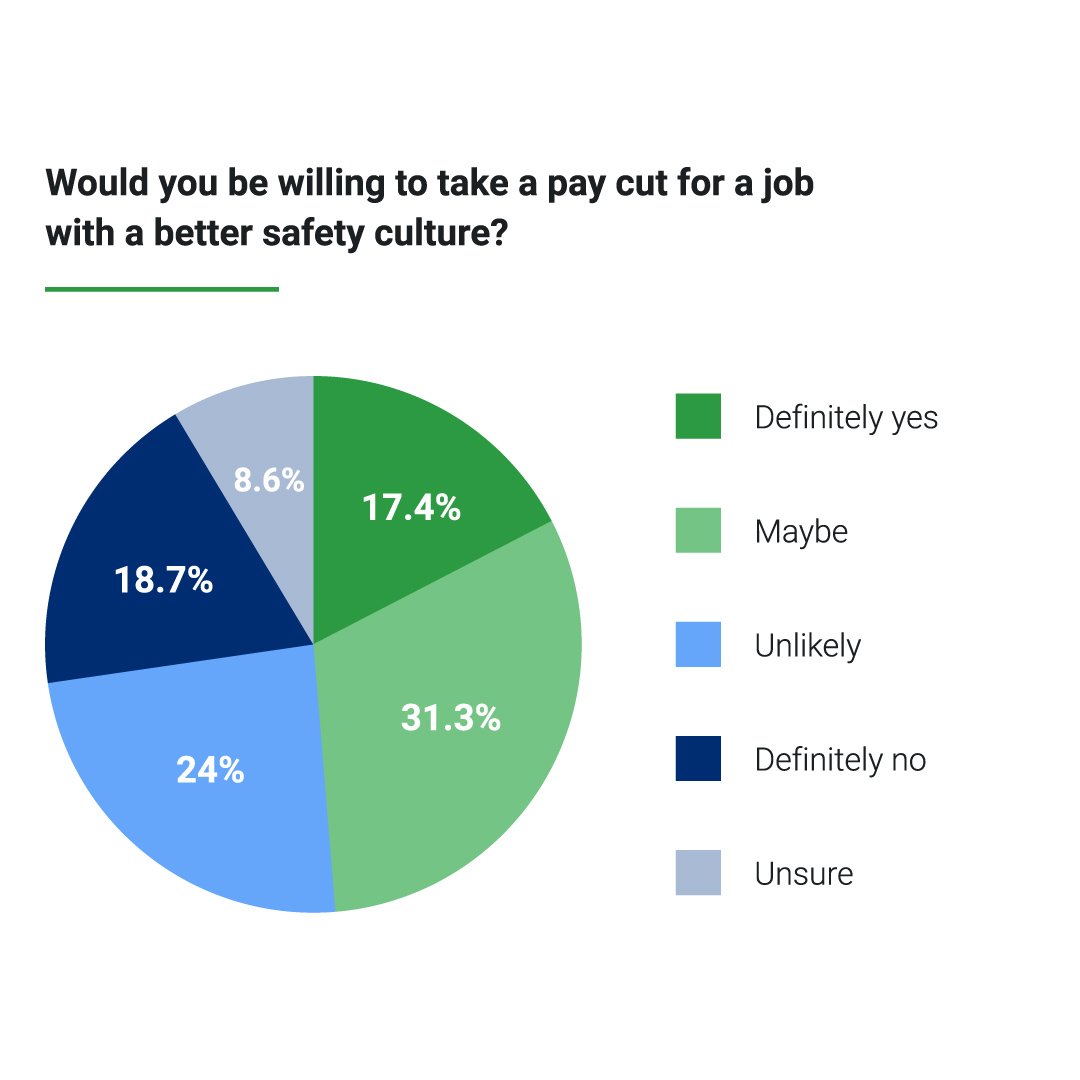
Where we did see a difference was between men and women. Men were significantly more likely to be willing to consider a pay cut for a job where there was a better culture of safety, 14% more likely to be specific.
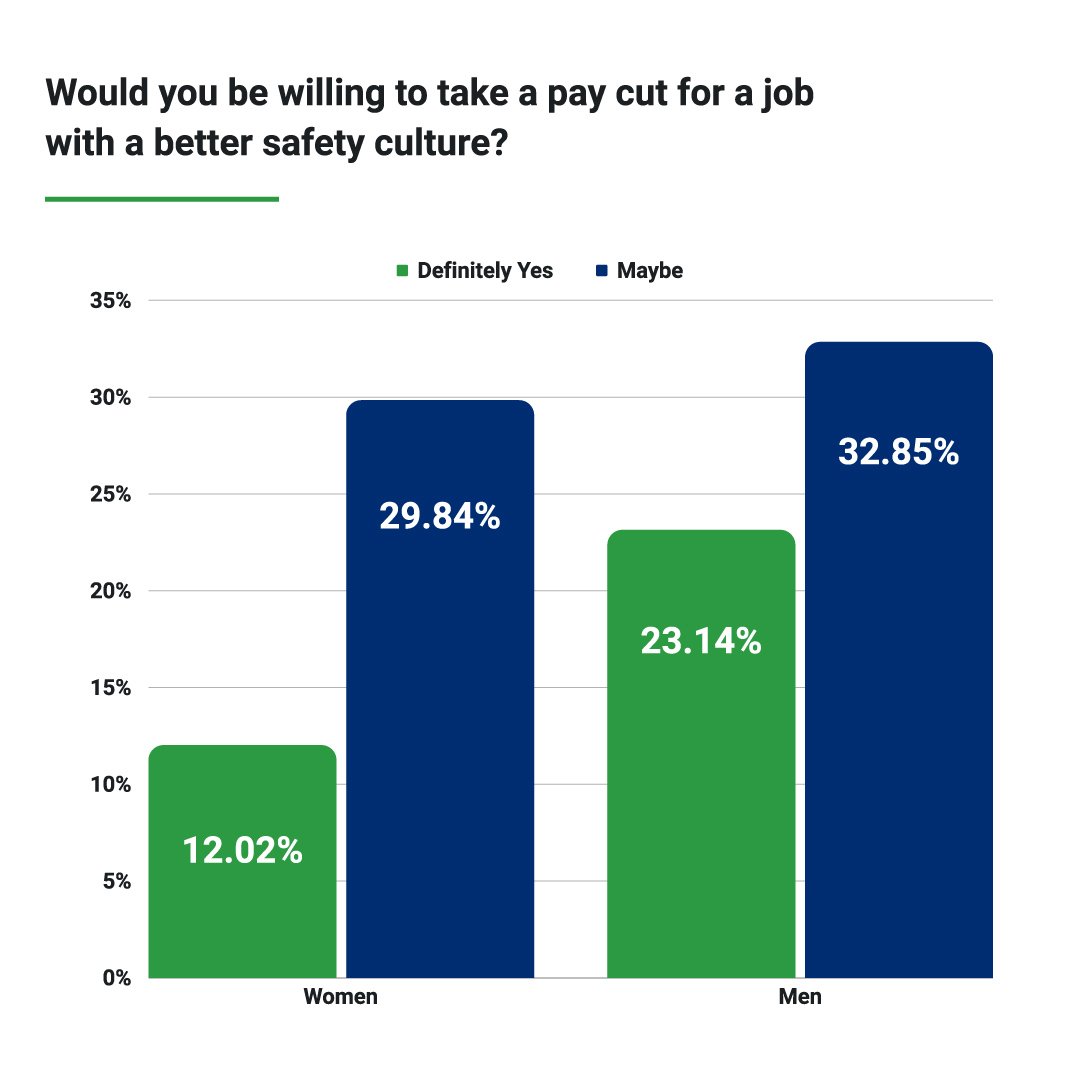
What this should be telling businesses is that prospective employees aren’t just paying lip service to wanting to be safe at work, and if organizations aren’t making it clear that they value safety, they need to.
“Culture is something communicated through actions as much as it is through words,” DuraPlas President Paul Phillips said. “So if you’re an organization that has a true culture of safety, it’s going to come through in more than posters hung in a breakroom or a days-safe countdown whiteboard on a production floor. It’s going to be communicated through the trainings you offer and the maintenance you do and the equipment you provide your workers. With this survey, we learned that employees are paying attention to these things, asking about them in the job-hunting process, and they are willing to sacrifice pay for a place that puts a priority on their safety.”
Almost 80% of American workers say a strong safety culture is either important or very important when deciding to accept a new job.
Not only do American workers say that they’d be willing to consider a pay cut to move to an employer with a strong safety culture, they say that safety culture is a critical factor in their decision on whether to accept a new position at all.
Overall, 79.4% of respondents said that a strong safety culture is either important or very important. We did see some slight variation in the level of importance between blue-collar and white-collar workers, although safety was still highly important to both groups. 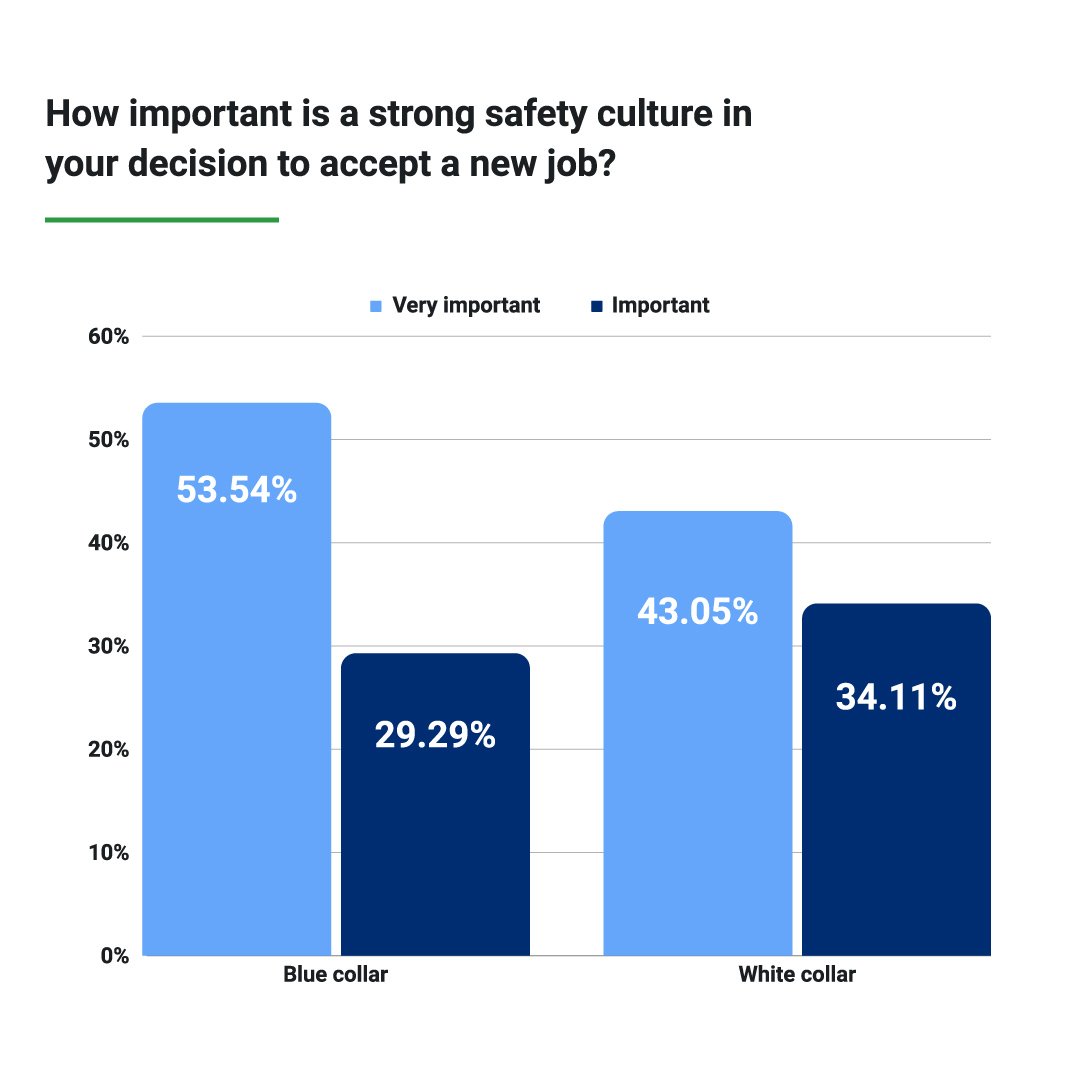 Interestingly, very few of those same respondents, just 39%, who said safety was a factor in accepting a new position have actually turned down a job over safety concerns.
Interestingly, very few of those same respondents, just 39%, who said safety was a factor in accepting a new position have actually turned down a job over safety concerns.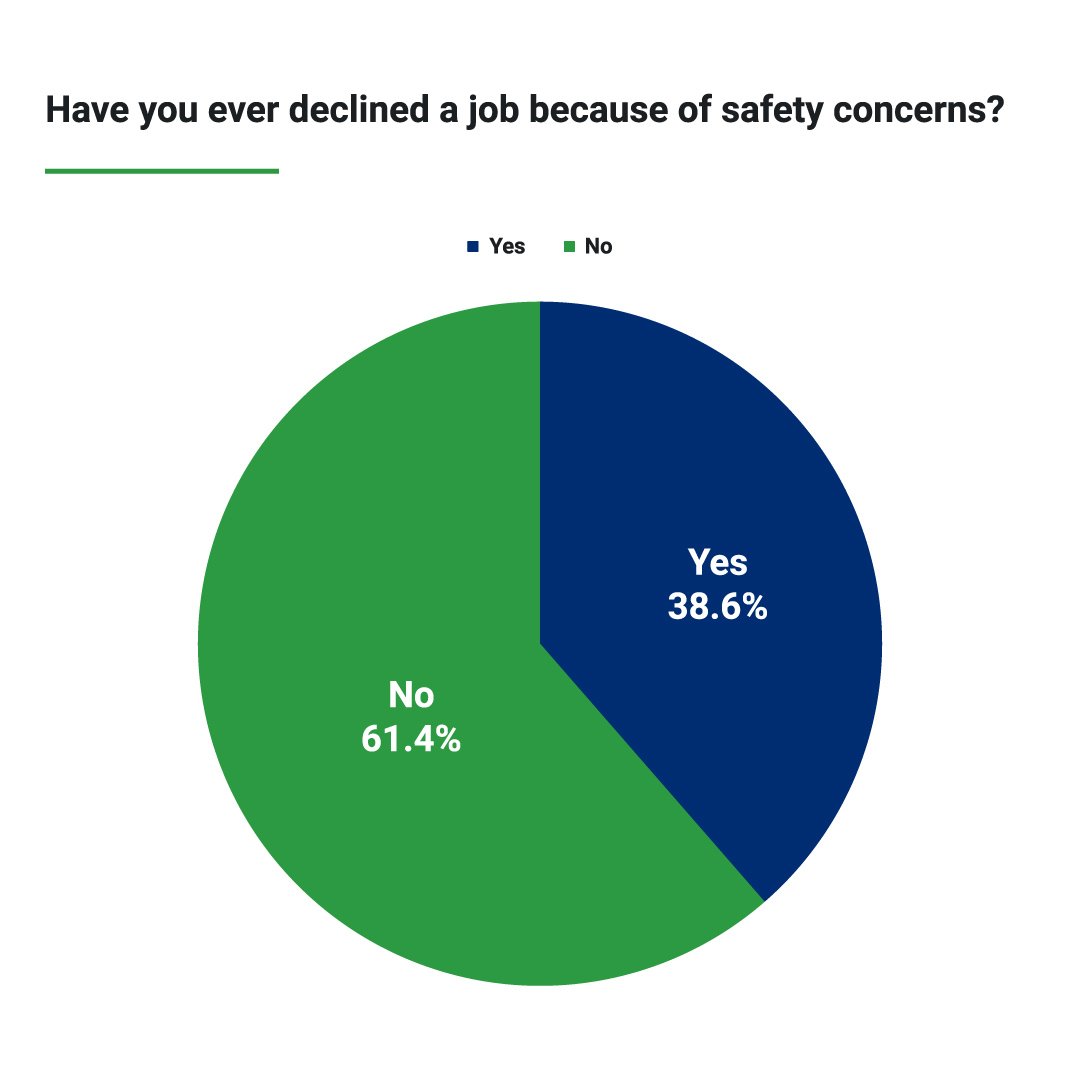
And once again, we saw a fairly wide spilt between the number of men and women who’d said no to a potential employer because of issues with safety.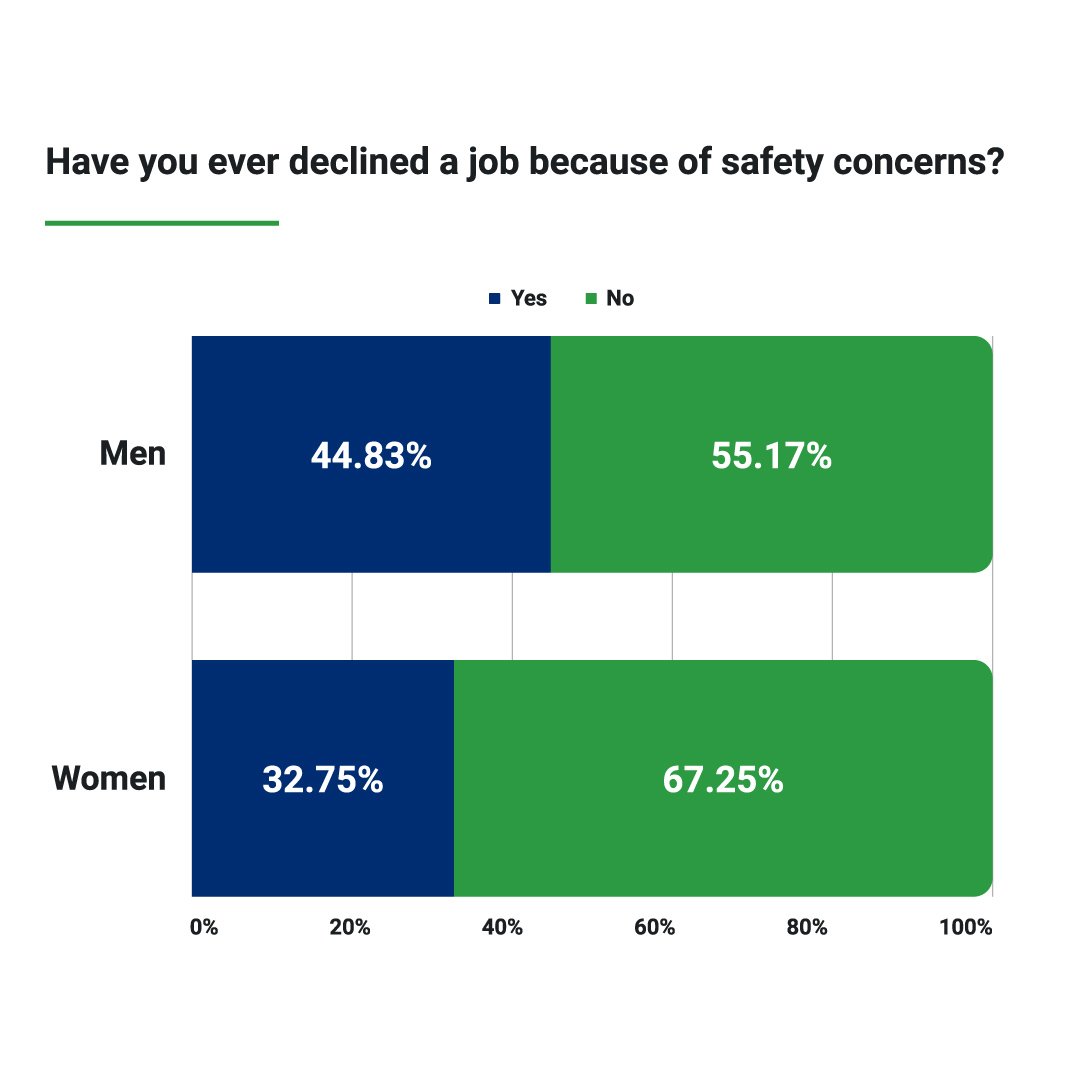
Nearly 80% say they are at least somewhat likely to ask about safety practices in a job interview.
Safety culture is such a concern in the job-search process that most American workers say they will bring up the subject if a potential employer doesn’t during the interview process, something half of those surveyed said employers don’t do very well.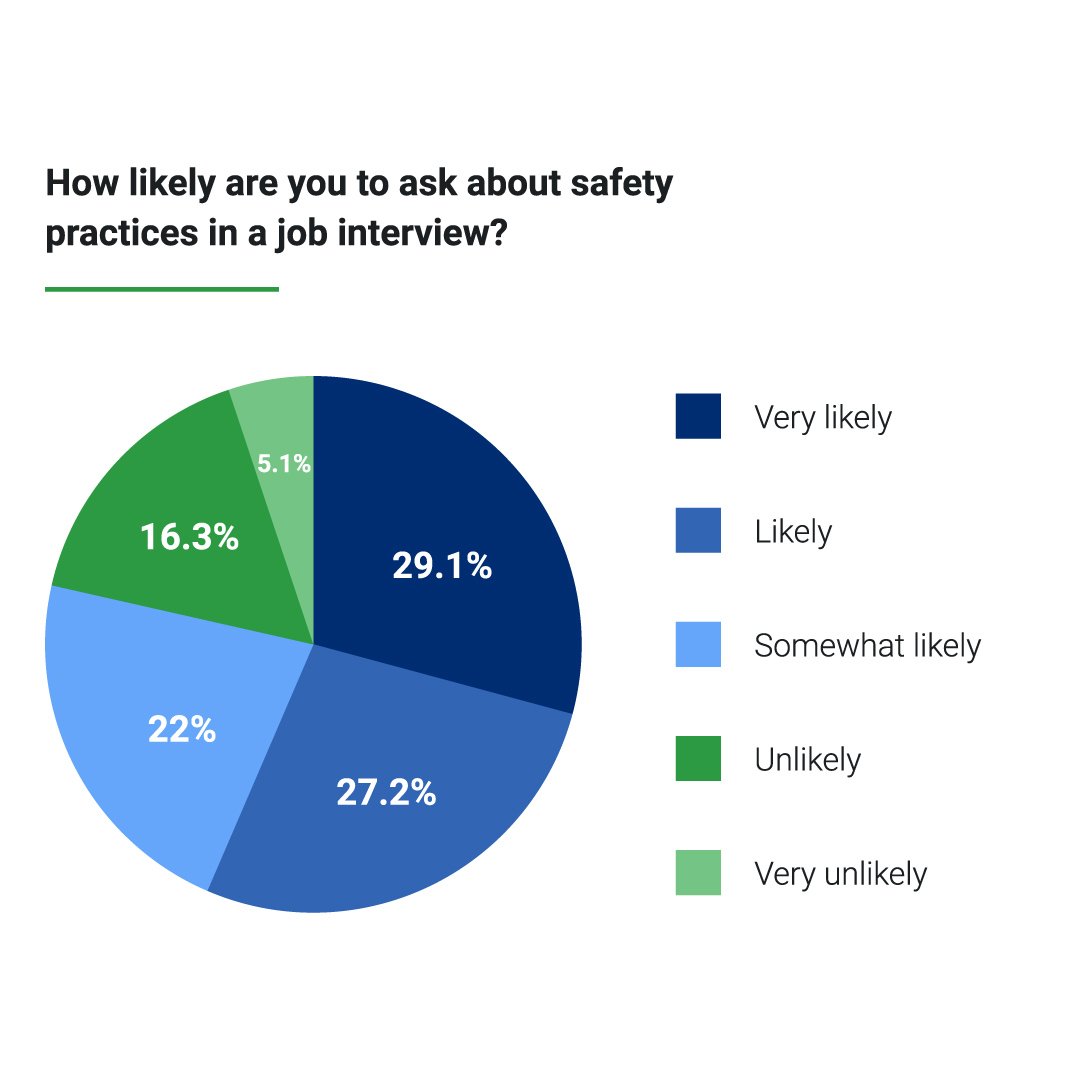
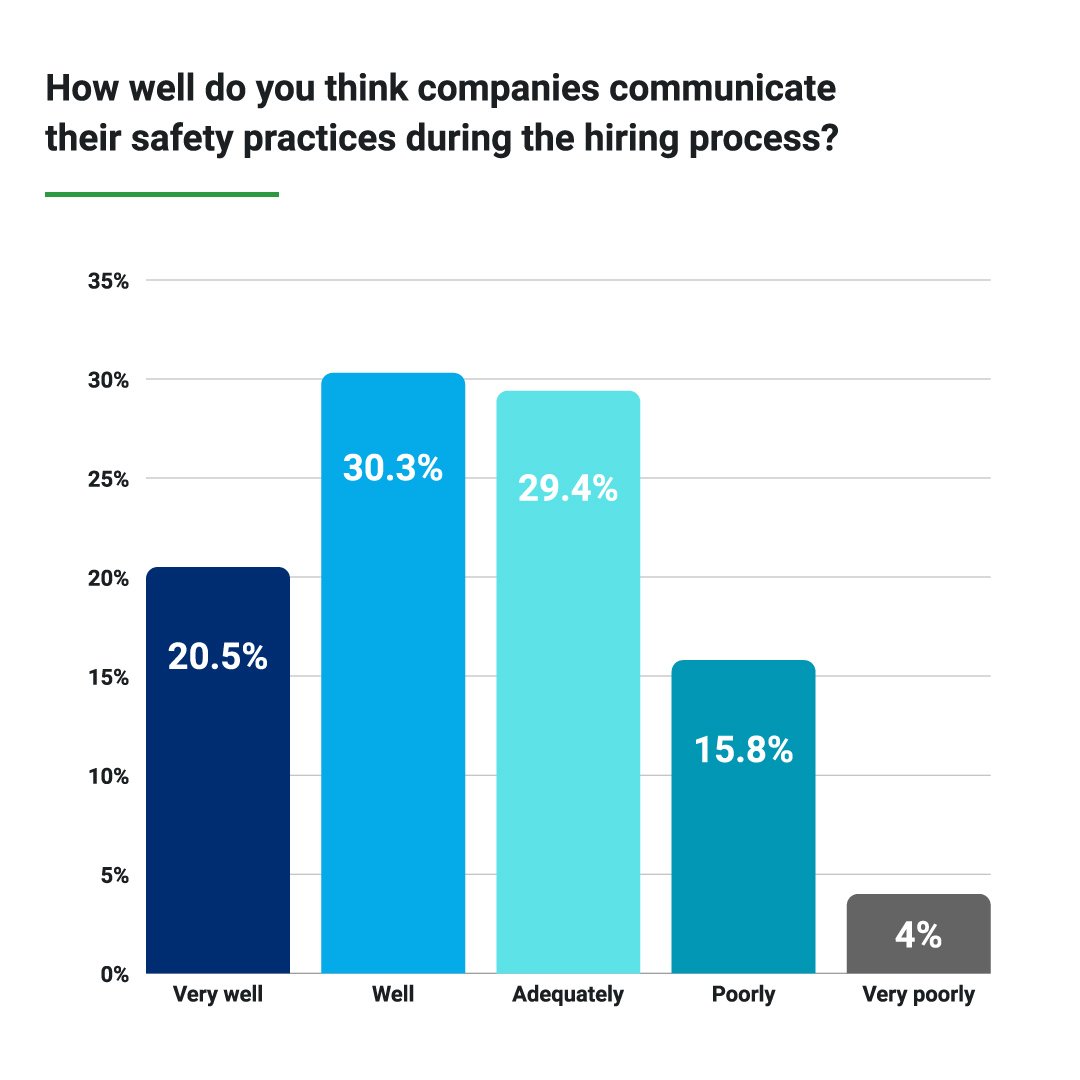
While strong majorities from both groups said they’d ask about safety practices, we did see from the results that it was slightly more likely someone interviewing for a blue-collar position would ask than someone interviewing for a white-collar role.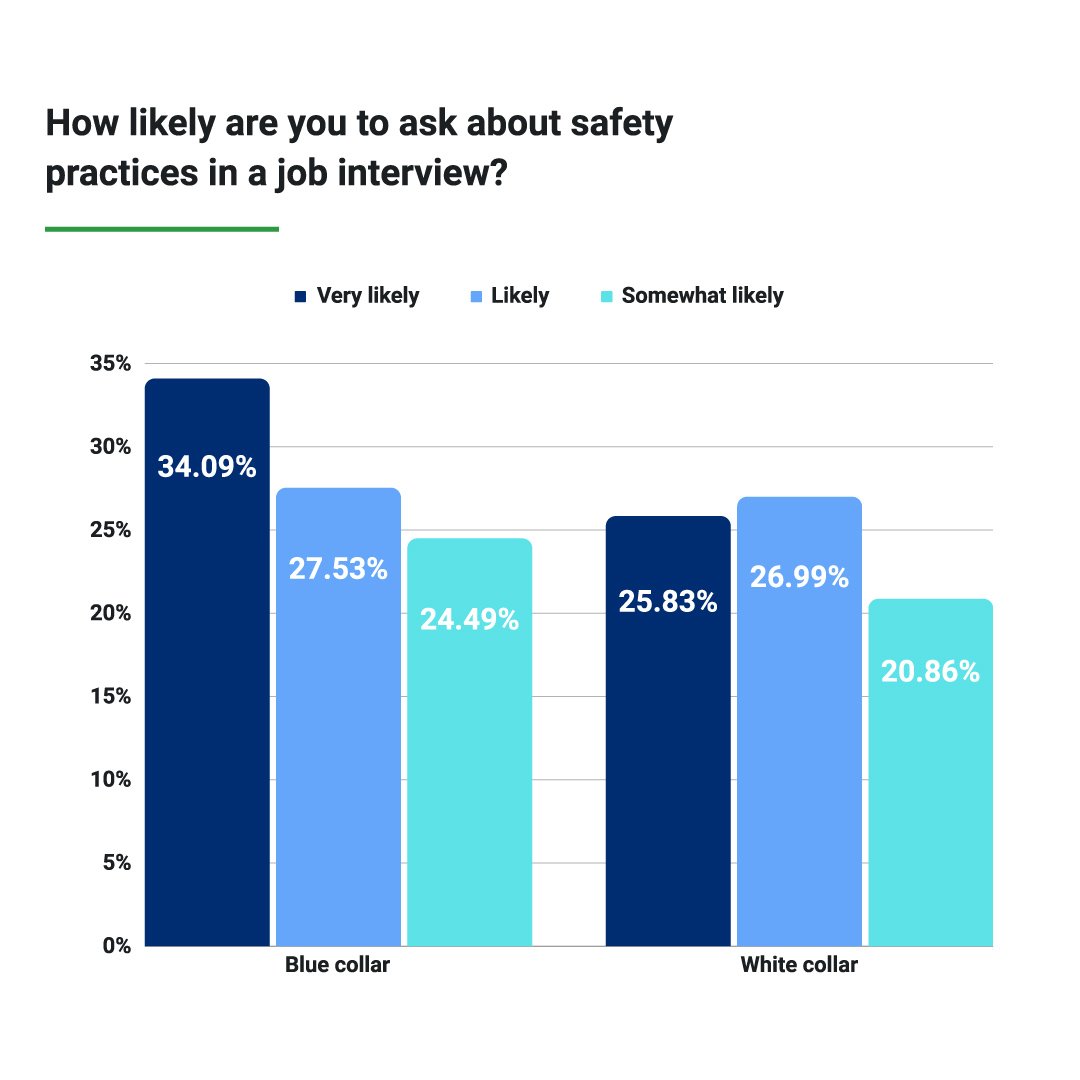
The vast majority of workers say a job where there’s a strong culture of safety is more satisfying and they feel more productive.
Perhaps American workers put such an emphasis on a culture of safety in the workplace because they know it means they’ll be happier if one is present.
When we asked if a strong safety culture contributed to overall job satisfaction, 82% said that it does.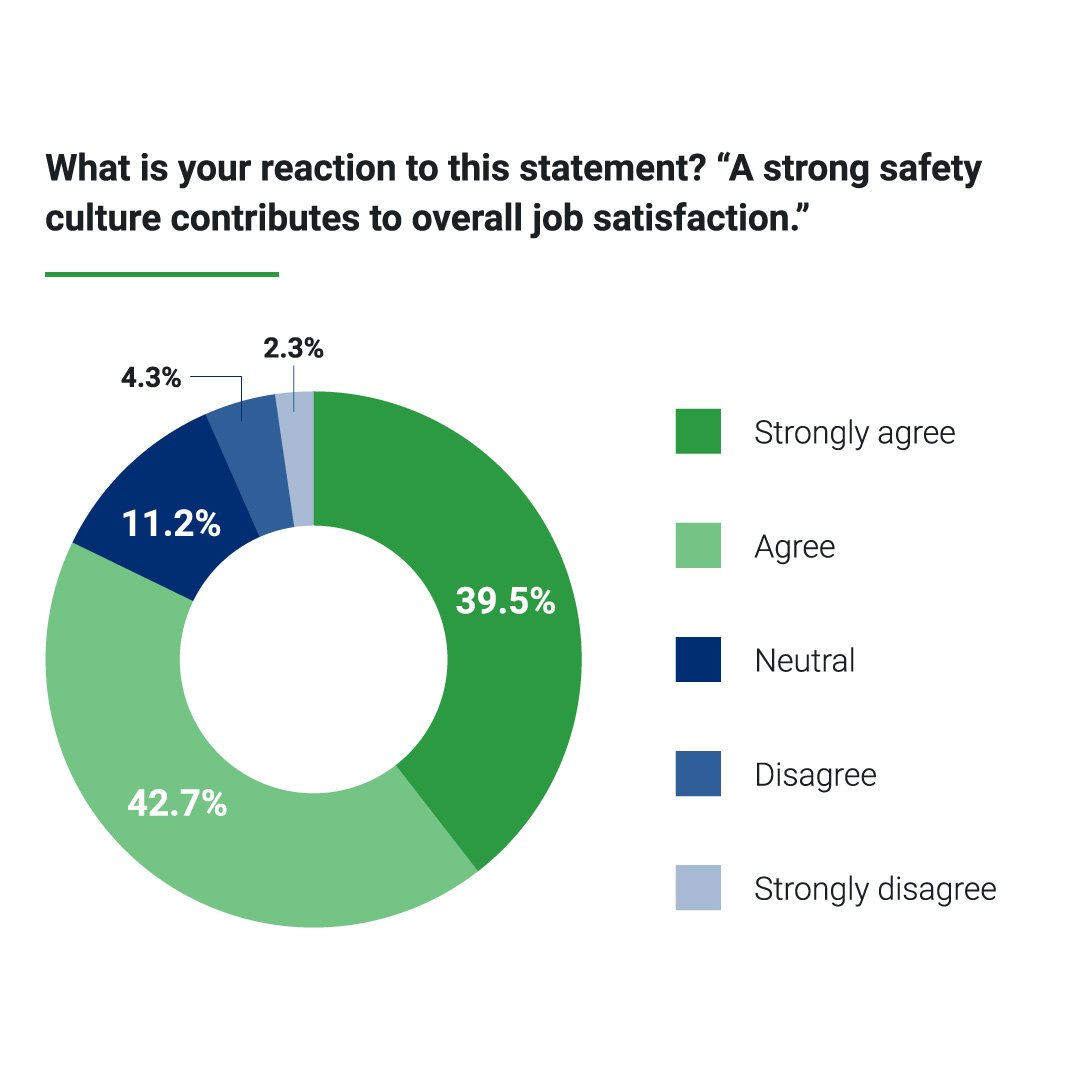
Additionally, safety culture contributes to worker productivity, according to those surveyed.

